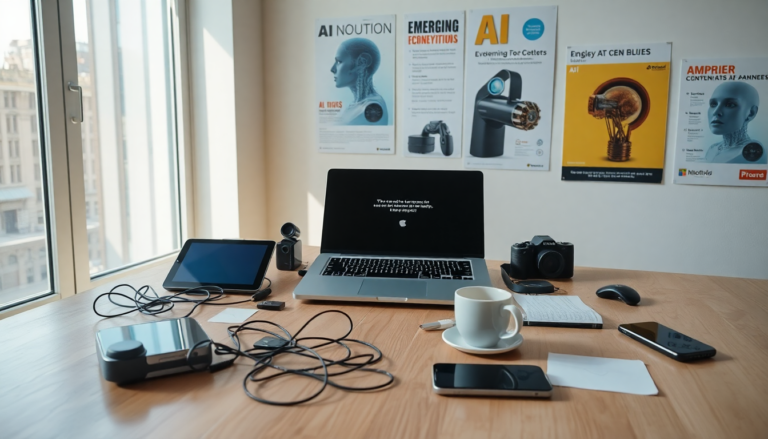Argomenti trattati
Imagine being trapped in a room full of shiny gadgets, but none of them work properly. That’s Apple right now, fumbling around in the dark while its competitors are busy lighting up the stage with groundbreaking AI advancements. If they want to play with the big boys and girls, they better start shopping for some serious Nvidia GPUs or get their act together and create their own AI-specific chips. But let’s be real, do they even have what it takes?
Hardware limitations and flawed research
According to Professor Seok Joon Kwon from Sungkyunkwan University, Apple’s recent research paper is about as useful as a chocolate teapot. They claim that modern large reasoning models (LRMs) and large language models (LLMs) hit a wall when it comes to complex problem-solving. But Kwon argues that this conclusion is laughable at best. Why? Because Apple simply doesn’t have the high-performance hardware to test these models effectively. Their setup is a glorified toy compared to the robust GPU clusters that Google and Microsoft are flaunting.
The sad state of Apple’s AI capabilities
Apple’s researchers pointed out that LLMs and LRMs struggle with complex problems, claiming that their performance tanks when faced with unfamiliar puzzles. Really? It’s like saying a fish can’t climb a tree! It’s not about thinking like humans; it’s about having the right tools. The paper suggests that Apple’s hardware is just not up to snuff, and that’s putting it mildly. It’s akin to trying to race a Ferrari with a rusty bicycle. Kwon insists that their findings are a direct contradiction to what hundreds of studies have shown: performance doesn’t just drop off a cliff when complexity increases; it simply plateaus.
Apple’s desperate attempts to catch up
With the annual WWDC conference looming, the timing of Apple’s research paper feels like a feeble attempt to throw shade on competitors like Google and Anthropic. It’s almost laughable how Apple is trying to downplay the strides made by those ahead in the AI game. They rolled out their Apple Intelligence initiative, which is basically just a fancy way of saying they’re focusing on basic on-device processing. It’s like bringing a knife to a gunfight, really.
Hybrid solutions and missed opportunities
Apple has started allowing Siri to tap into external LLMs when it can’t handle a query. How quaint! So now, instead of being the all-powerful assistant, Siri is just a middleman. Sure, they’re pretending to safeguard user data, but let’s not kid ourselves; this is a last-ditch effort to seem relevant. Kwon points out that Apple’s obsession with its closed ecosystem has left it scrambling to develop the data center-grade hardware needed for real AI training. Their M-series processors, meant for consumer PCs, simply don’t cut it for AI tasks.
The bleak outlook for Apple’s AI future
If Apple wants to step up its game, it can’t just continue down the same path. They need to develop server-grade processors that can actually compete in the AI arena, instead of relying on their underwhelming M-series GPUs. It’s a classic case of being stuck in the past while the world races forward. And let’s face it, without a major pivot in strategy, Apple might just find itself out in the cold, watching competitors thrive while it clings to its outdated ideals.
So, here’s the million-dollar question: can Apple really catch up? Or are they destined to play the role of the tech underdog forever? One thing’s for sure; the way things are going, it’s hard to imagine they’ll be leading the charge anytime soon.

